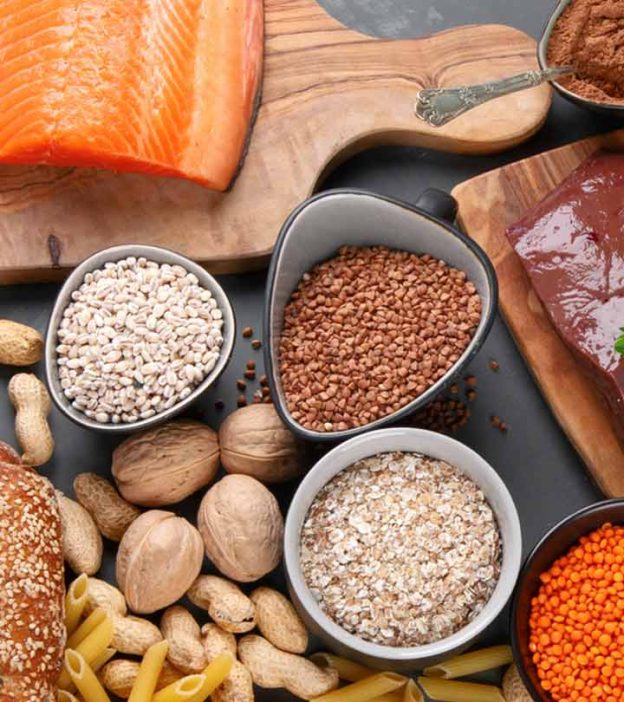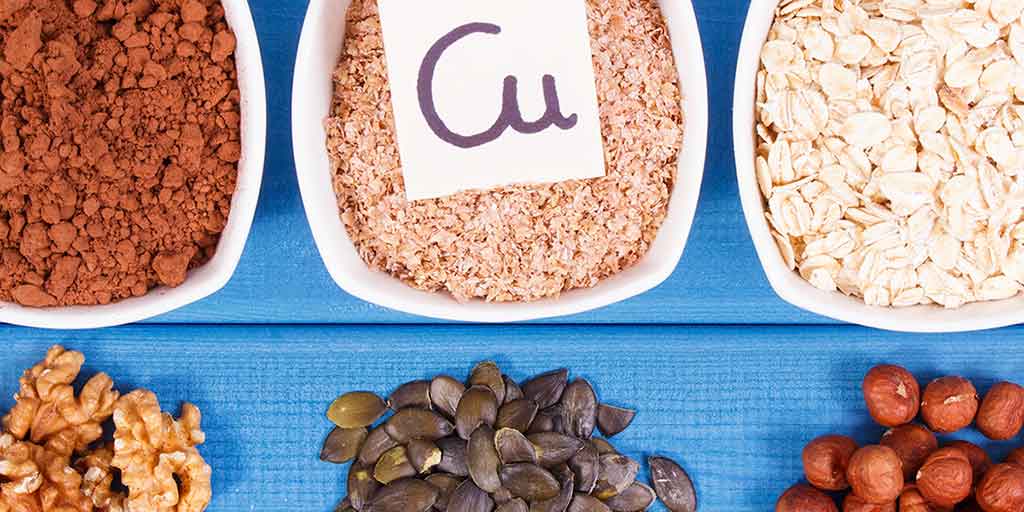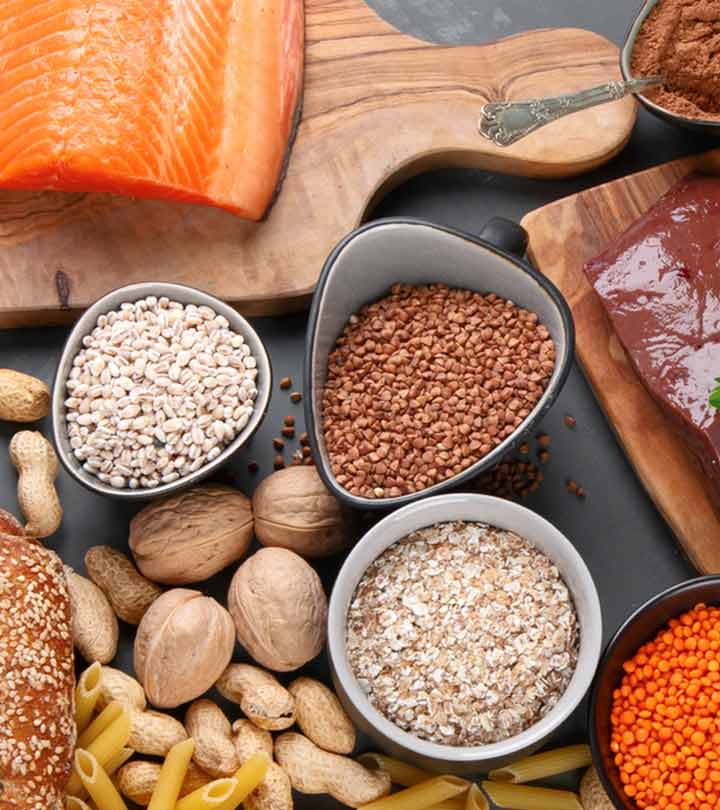Copper is an essential mineral for the body and is found in a variety of foods. Some of the best foods high in copper include beef liver, oysters, mushrooms, cashew nuts, sunflower seeds, potatoes, dark chocolate, and tofu.
These foods provide numerous health benefits, such as boosting brain health, improving immune function, aiding in energy production, and supporting collagen formation. Consuming a balanced diet that includes copper-rich foods can help ensure adequate copper intake and promote overall health and well-being.

Introduction To Copper And Its Health Benefits
Copper is an essential trace mineral that plays a crucial role in various bodily functions. It is involved in the formation of red blood cells, the maintenance of connective tissues, and the proper functioning of the immune system. Additionally, copper also acts as an antioxidant, helping to protect cells from damage caused by free radicals.
What Is Copper, and Why Is It Important?
Copper is a mineral that is naturally present in many foods and is vital for the normal functioning of the body. It is involved in numerous enzymatic reactions, including those that are essential for energy production, collagen synthesis, and iron metabolism. Copper is also necessary for the formation of hemoglobin, which carries oxygen in the blood, making it crucial for overall health and well-being.
The Health Benefits Of Copper
Copper offers numerous health benefits due to its involvement in various physiological processes. Some of the key benefits of copper include:
- Promoting a healthy immune system: Copper is known to support the normal functioning of the immune system, helping to protect against infections and diseases.
- Enhancing iron absorption: Copper plays a crucial role in the metabolism of iron, aiding in its absorption from the intestines. This is particularly important for individuals with iron deficiency or anemia.
- Supporting brain function: Copper is involved in the synthesis of neurotransmitters, which are essential for proper brain function. It also plays a role in maintaining the myelin sheath, a protective layer around nerve cells.
- Promoting collagen production: collagen is a structural protein that is essential for the health of connective tissues, such as skin, bones, and blood vessels. Copper is necessary for the formation of collagen, helping to maintain the strength and integrity of these tissues.
- Acting as an antioxidant: Copper is a powerful antioxidant that helps to neutralize harmful free radicals in the body, which can cause oxidative damage and lead to various chronic diseases.
Recommended Daily Intake Of Copper
The recommended daily intake of copper varies depending on age, sex, and life stage. According to the National Institutes of Health (NIH), the following are the recommended daily allowances (RDAs) for copper:
| Age Group | RDA of Copper (micrograms) |
|---|---|
| Infants (0–6 months) | 200 |
| Infants (7–12 months) | 220 |
| Children (1-3 years) | 340 |
| Children (4–8 years) | 440 |
| Children (9–13 years) | 700 |
| Adolescents (14–18 years) | 890 |
| Adults (19+ years) | 900 |
| Pregnant women | 1,000 |
| Breastfeeding women | 1,300 |
It’s important to note that excessive copper intake can be harmful to health, so it is essential to stick to the recommended daily allowances.
Top 10 Copper-rich Foods
Discover the top 10 copper-rich foods that are not only delicious but also offer numerous health benefits. From beef liver to dark chocolate and mushrooms, these foods are packed with essential nutrients and can help support brain health and prevent copper-related disorders.
Top 10 Copper-rich Foods
When it comes to incorporating copper into your diet, there are several delicious and nutritious options to choose from. Let’s take a look at the top 10 copper-rich foods:
1. Beef Liver
Beef liver contains the most amount of copper per serving of any food. Just a 100-gram serving of beef liver provides approximately 12.85 milligrams of copper, which is more than 600% of the recommended daily intake. It is also an excellent source of protein, iron, and vitamin A.
2. Oysters
Oysters are not only known for their aphrodisiac properties, but they are also a great source of copper. Just 100 grams of oysters contain approximately 7.6 milligrams of copper, along with other essential nutrients like vitamin B12, zinc, and omega-3 fatty acids.
3. Mushrooms
Mushrooms, especially shiitake mushrooms, are another fantastic source of copper. Apart from providing approximately 1.4 milligrams of copper per 100 grams, mushrooms also offer numerous health benefits, like boosting the immune system and promoting heart health.
4. Cashew Nuts
Cashew nuts not only make for a tasty snack but also contribute to your copper intake. A 100-gram serving of cashew nuts contains approximately 2.2 milligrams of copper. These nuts are also rich in healthy fats, fiber, and various vitamins and minerals.
5. Sunflower Seeds
Sunflower seeds are not just delicious but also a convenient way to increase your copper consumption. With approximately 1.8 milligrams of copper per 100 grams, sunflower seeds are often enjoyed as a snack or used in salads, bread, and other dishes.
6. Potatoes
Potatoes are a versatile and affordable vegetable that can help you meet your copper needs. With approximately 0.2 milligrams of copper per 100 grams, potatoes are also a good source of vitamin C, potassium, and dietary fiber.
7. Dark Chocolate
For all the chocolate lovers out there, here’s some good news: dark chocolate is a decent source of copper. A 100-gram serving of dark chocolate provides approximately 3.3 milligrams of copper, along with antioxidants that offer various health benefits.
8. Tofu
Tofu, a popular plant-based protein source, is also a good source of copper. Approximately 0.25 milligrams of copper can be found in a 100-gram serving of tofu. It is also rich in other essential nutrients, like calcium, iron, and magnesium.
9. Seeds And Nuts
Various other seeds and nuts, like sesame seeds, pumpkin seeds, almonds, and Brazil nuts, contain significant amounts of copper. These small but mighty foods not only enhance the taste and texture of your meals but also provide essential nutrients that contribute to overall health.
10. Shiitake Mushrooms
Shiitake mushrooms deserve a special mention in this list as they are one of the best plant-based sources of copper. With approximately 1.3 milligrams of copper per 100 grams, shiitake mushrooms offer a unique flavor and numerous health benefits.
Other Dietary Sources Of Copper
Discover a variety of dietary sources of copper that can benefit your health. From beef liver and oysters to mushrooms and dark chocolate, these foods are rich in copper and provide numerous health benefits. Incorporate them into your diet for optimal copper intake.
Protein Foods: Organ Meats, Shellfish, Fish
Protein-rich foods such as organ meats, shellfish, and fish not only provide essential nutrients for our bodies, but they are also great sources of copper. Organ meats like beef liver contain the highest amount of copper per serving compared to any other food. Including shellfish, such as oysters, in your diet can also help increase your copper intake. Additionally, fish like salmon and trout are excellent sources of copper and provide various health benefits due to their omega-3 fatty acid content.
Nuts And Seeds
Nuts and seeds are not only delicious and versatile, but they are also packed with essential nutrients, including copper. Cashew nuts and sunflower seeds are known for their copper content and can be easily incorporated into your daily diet. Adding almonds and pumpkin seeds to your meals or snacks can also provide you with a good amount of copper. These nuts and seeds not only promote a healthy heart but also support brain function and overall well-being.
Whole Grains
Whole grains like quinoa are not only an excellent source of dietary fiber but also provide a significant amount of copper. By adding quinoa to your meals, you can enjoy its numerous health benefits, including improved digestion and increased energy levels. Other whole grains like oats, brown rice, and barley also contain copper and can be included in your diet to ensure an adequate intake of this essential mineral.
Leafy Greens: Kale, Swiss Chard, Spinach
Green leafy vegetables like kale, Swiss chard, and spinach are not only delicious but also rich in copper. By incorporating these vegetables into your salads, sautéed dishes, or smoothies, you can enjoy the health benefits that copper provides. Copper is important for the production of collagen, a protein that supports healthy skin, and these leafy greens can contribute to maintaining a youthful complexion while also supporting your immune system.
Beans
Beans are a fantastic source of plant-based protein and other essential nutrients, including copper. Varieties like kidney beans, black beans, and chickpeas are especially high in copper content. These legumes can be used in a variety of recipes, from soups and stews to salads and dips. Including beans in your diet not only adds flavor and texture to your meals but also provides a nutritional boost.
Quinoa
Quinoa is a versatile and nutritious whole grain that is gaining popularity in many cuisines. It is not only packed with protein but also contains a significant amount of copper. By incorporating quinoa into your meals, you can enjoy its health benefits, including improved digestion, weight management, and heart health. Quinoa can be used as a substitute for rice or pasta, or it can be enjoyed as a side dish or added to salads and stir-fries.
Incorporating these dietary sources of copper into your meals can help ensure that you meet your body’s copper requirements. Remember that moderation is key, and it is always best to consult with a healthcare professional or a registered dietitian for personalized dietary advice. Enjoy these delicious and nutritious foods while reaping the health benefits that copper provides!


Frequently Asked Questions On 20 Best Foods High In Copper And Their Health Benefits
What Is The #1 Food Highest In Copper?
Beef liver contains the highest amount of copper among all foods. Other good sources include oysters, mushrooms, cashew nuts, sunflower seeds, and dark chocolate. Copper is also found in protein-rich foods like organ meats, shellfish, fish, nuts, seeds, whole grains, and chocolate.
Including these foods in your diet can help maintain copper levels in the body.
What Food Has Copper Benefits?
Foods high in copper include beef liver, oysters, mushrooms, cashew nuts, sunflower seeds, potatoes, dark chocolate, and tofu. Copper-rich foods also include organ meats, shellfish, fish, nuts, seeds, whole grains, and chocolate. Bananas do not have high copper content. Copper deficiency can occur due to foregut surgery, dietary deficiency, malabsorption, or prolonged intravenous nutrition.
Are Bananas High In Copper?
Bananas are not high in copper. They are a good source of potassium, vitamins, biotin, and fiber.
What Depletes Copper In The Body?
Common risk factors for depleting copper in the body include foregut surgery, dietary deficiency, malabsorption issues, and prolonged intravenous nutrition. Copper deficiency can lead to anemia, leucopenia, and other health problems. Be sure to include copper-rich foods like beef liver, oysters, mushrooms, and dark chocolate in your diet.
Conclusion
Incorporating foods high in copper into your
Green leafy vegetables, beans, and quinoa also contribute to your copper intake. Remember to maintain a balanced diet to ensure optimal copper absorption and avoid copper deficiency or excess. Start prioritizing your health today by adding these foods to your meals.


